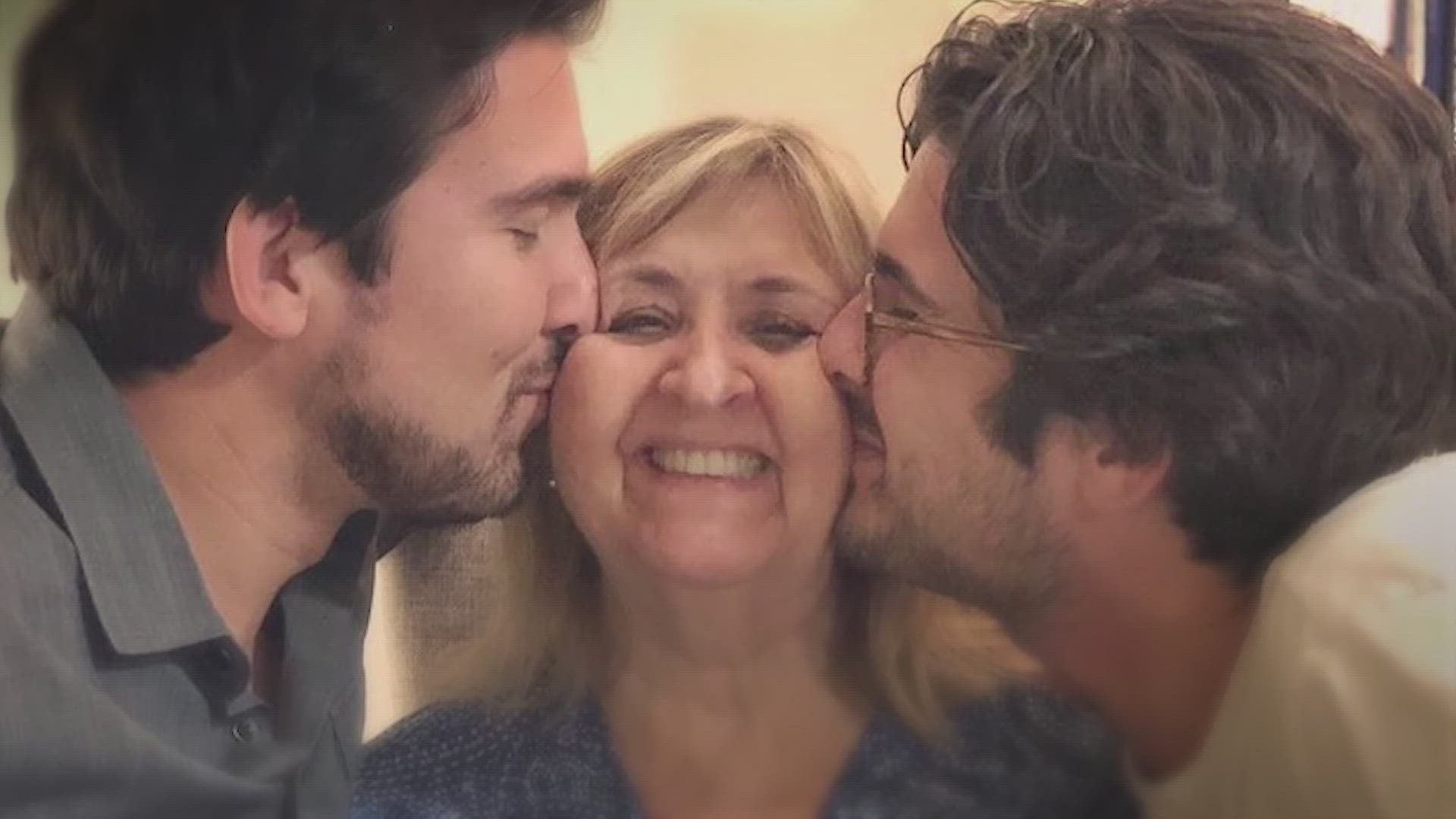HOUSTON — Alzheimer's disease is the most common form of dementia and is the sixth leading cause of death in the U.S. Earlier this year, it took the life of my mother.
For Hispanic Heritage Month, I'm sharing this story, one that's close to my heart, hoping to help families battling the life-changing disease.
There are two days I will never forget- the day my mom was diagnosed and the day I held her hand as she passed away. For years I watched my mom slowly fade, and in that moment, my family felt so alone. But now I know so many families are struggling and it's impacting my community- Latinos, in dramatic numbers. I want you to know, you are not alone. It's a problem we cannot ignore.
Marina Castillo is one of thousands of people touched by the disease in Texas. Her grandmother Lupita Gil was diagnosed with Alzheimer's in 1997.
"The tears I don't think ever truly stop," she told me.
She witnessed her slow decline as her caregiver up close. Confusion and memory loss until the day she no longer recognized her.
"Even though she doesn't realize that little girl is right in front of her, she knows the love that we had never truly went away," Marina told me.
Lupita passed away in 2009, 12 years after her diagnosis.
"Losing such a big person in my life was very difficult," she said. "When it finally happens you let it all out."
Latino families like Marina's and mine are just two of the millions touched by Alzheimer's.
It's why at the University of Houston, researchers like Dr. Luis Medina are tackling what they call a public health crisis for a disease that has no cure right now.
"By the year 2060, we're expecting a 9-fold increase in Hispanic individuals with Alzheimer's disease," said Medina.
That's more than any other group.
In Houston, which is home to 44% Hispanics, that will pose severe challenges for thousands of families.
"The impact of this disease extends well beyond the individual," said Medina.
The problem is truly troubling in the Rio Grande Valley, which is 90% Hispanic. It sees some of the highest Alzheimer's rates in the country. People 65 and up are nearly twice as likely to be diagnosed with the disease compared to the national average.
"The estimates we do have may not even be the full picture," Medina told me.
Finding out why Hispanics have a higher chance of Alzheimer's is critical to finding a cure. But despite accounting for 18% of the population, only 2% of Alzheimer's trial participants are Latinos.
"We need to see how the disease is acting out in all types of brains," said Medina.
At Baylor College of Medicine, Dr. Nora Vanegas-Arroyave is working to recruit more Latinos for their ongoing Alzheimer's studies.
"This something we're going to have to face at some point," said Vanegas-Arroyave.
There's still much to learn about the disease and Latinos. What's clear so far -- language, cultural barriers and access to care are pieces of the problem.
"There may be a lot of taboos of participating in research and fear," said Vanegas-Arroyave.
That fear kept people like my mom from participating. Other Latino families overlook memory loss and waste critical time without seeing a doctor for a diagnosis.
"When we see the signs we need to talk about it, not brush it off because grandma or grandpa is getting old," Marina said.
It is a painful journey to have to travel, but ask anyone who's lived it and they'll tell you, the disease takes its toll, but cannot destroy everything.
It doesn't destroy love.
"That's right, they don't forget love. They know that you're their family and that love is always there."
My mom certainly didn't forget that love and I miss her every day.
If you or your family are facing Alzheimer's right now, please know you're not alone. There are so many resources out there. For help or to sign up for clinical studies, reach out to the Alzheimer's Association. There is a local chapter here in Houston. They are located at 6055 S Loop E, Houston, TX 77087. There's also a 24-7 hotline for help at 1-800-272-3900.
To learn more about Alzheimer's or to donate to help find a cure go to ALZ.org.

